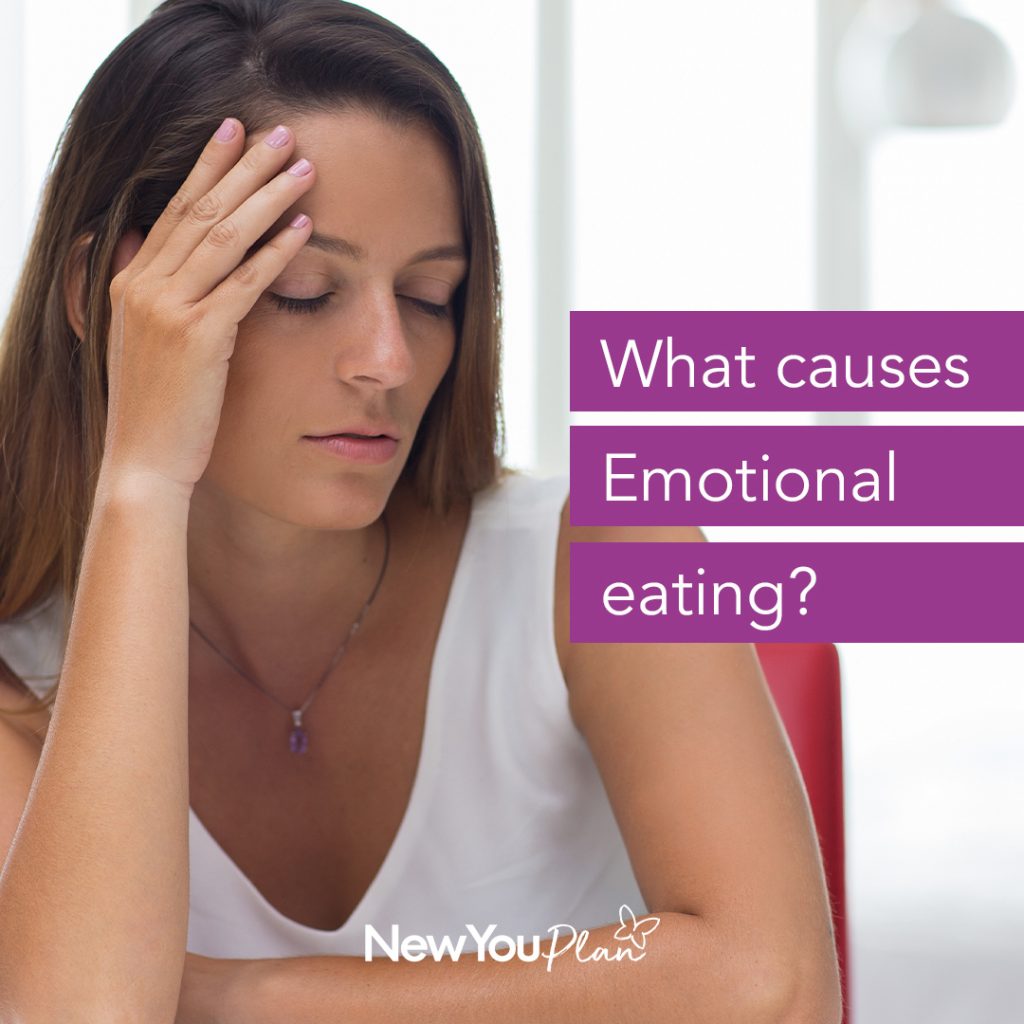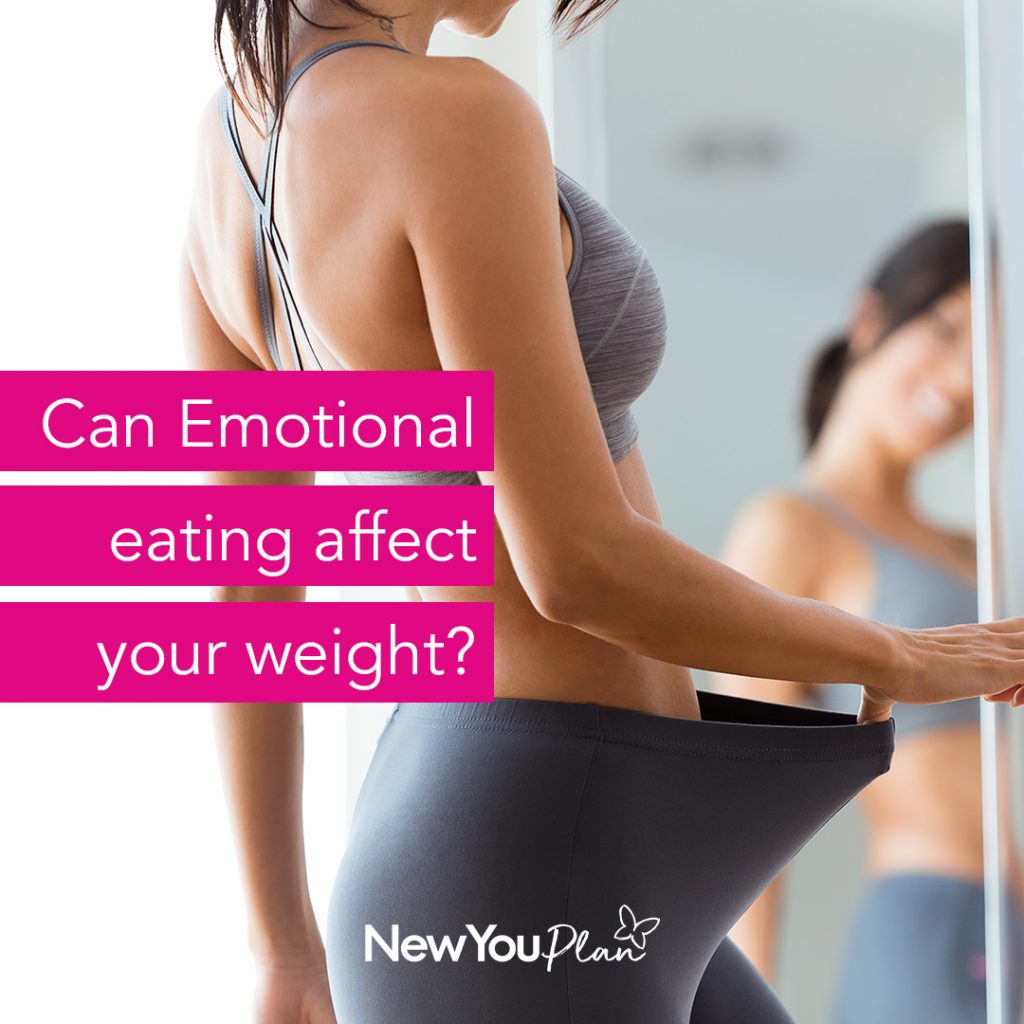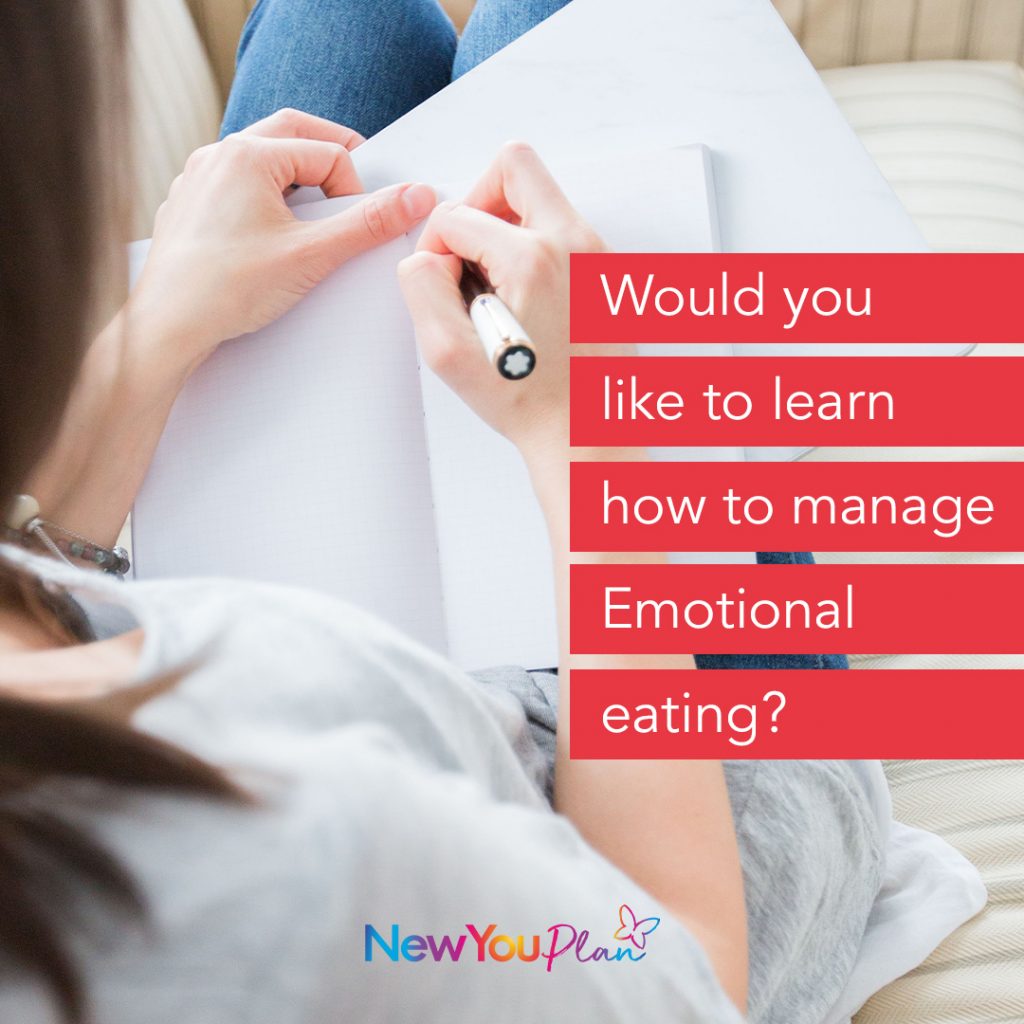
Do you reach for snacks when feeling Unhappy?
Emotional Eating
Many of us reach for our comfort foods after an upsetting or stressful day. Yet the term emotional eating is often brought up in a problematic or harmful context. Let’s find out what it is and how it could be impacting you and your weight management journey.
What is emotional eating?
Emotional eating refers to changes in what you eat and how much you eat in response to emotions. Research suggests that emotional eaters tend to eat more following negative emotions rather than positive ones (1). This can be to fill a void or create a feeling of temporary fullness.
Eating emotionally can lead to an increase in eating, and in particular, foods higher in saturated fats and sugar (2).
It’s quite common for many people to use food as a coping mechanism in the face of overwhelming emotion and it’s not necessarily a problematic thing however, it can lead to a cycle of excess eating and feelings of guilt as well as weight gain and associated health issues. We’ve got some helpful tips that you can start doing today to manage your own emotional eating.

What causes emotional eating?
Twin studies have suggested that environmental factors, like the family home environment and parenting practices in childhood, can influence emotional eating (3). Genetics may also play any part, research has estimated 9-60% of emotional eating is heritable (2).
This could explain why you don’t always eat more in response to all negative emotions or the same negative emotion that was caused by something else. Emotional eating could stem from learning to associate eating with very specific emotional and other psychological cues in the past (4).
Other things that research suggest may cause emotional eating are:
- Poor awareness of hunger and satiety
- Difficulty regulating emotions
- Confusion of hunger and physiological symptoms that come with certain emotions
- Proximity to ‘attractive’ food when feeling negative emotions
- Hyper-responsiveness to food
- Chronic stress which can lead to blunted cortisol stress response
- Emotional eating has also been linked to depression (5)

Can emotional eating affect your weight?
Using food as a way to regulate negative feelings has been associated with a less healthy dietary pattern when compared with choosing foods with weight loss in mind (6). Stress in particular can influence you to choose more palatable foods like chocolate, crisps and ice cream (2). Given how stressful our lives can be, it’s easy to see how emotional eating could contribute to weight gain over time.
Consuming more foods higher in sugar, salt and saturated fat but low in nutrients can also have an impact on your health. It’s no surprise that stress eating has been shown to predict pre-diabetes and type 2 diabetes (7).
Emotional eating is associated with being a higher weight, and this association is stronger in females and those with a history of dieting (8). This doesn’t necessarily mean that emotional eating always leads to weight gain but it’s important to keep in mind (9).

How to manage emotional eating
Using food to soothe your emotions and stress is ok and not inherently problematic. However, if you feel like it’s affecting your life or your weight loss/weight management journey, there are some tools that can help you stay in control.
- Practice mindfulness – Higher levels of mindfulness are associated with fewer difficulties in emotion regulation, which, in turn, has been associated with less emotional eating (10). Mindful eating can help you tap into your hunger and fullness cues, helping us to understand what our eating triggers are.
- Improve sleep hygiene – aim for 7-9 hours a night. Some classic ways to do this are putting your phone away before bed, 10 minutes of meditation before lights out, and avoid exercising too close to bedtime. Improving your sleep quality can help to manage stress. Insufficient sleep (7 hours or less) in conjunction with emotional eating may have more of an impact on your weight than if you had 9 or more hours of sleep (11).
- Move your body daily – Depending on your activity level, start small and manageable, even just 10 minutes a day. Moderate exercise improves mood and your ability to regulate your thoughts, emotions and behaviour (12) which can reduce your tendency for emotional eating (13,14).
- Practice yoga – Yoga has been associated with improved stress levels which in turn have been associated with improvements in emotional eating (15,16).
- Stress relief techniques – Emotional eating is a coping mechanism so making sure you have others in your toolkit is important so you don’t rely solely on food. These could include more self care, journaling or starting a gratitude diary. Having self-compassion for when you do reach for food to soothe you is key to not being stuck in a vicious cycle of negative emotions and eating to cope.
Stress and negative emotions are a part of life but hopefully adopting some of these techniques into your habits can reduce some negative emotions and help you manage others. If your emotional eating is becoming too much, consider seeking counselling or behaviour therapy that can help you to regulate your emotions and change your behaviours.
References:
(1) van Strien, T., Cebolla, A., Etchemendy, E., Gutiérrez-Maldonado, J., Ferrer-García, M., Botella, C., & Baños, R. (2013). Emotional eating and food intake after sadness and joy. Appetite, 66, 20–25. https://doi.org/10.1016/j.appet.2013.02.016
(2) Konttinen, H. (2020). Emotional eating and obesity in adults: The role of depression, sleep and genes. Proceedings of the Nutrition Society, 79(3), 283-289. doi:10.1017/S0029665120000166
(3) Herle, M., Fildes, A., and Llewellyn, C. H. (2018) Emotional eating is learned not inherited in children, regardless of obesity risk, Pediatric Obesity. 13, 628– 631, doi.org/10.1111/ijpo.12428.
(4) Altheimer, G., & Urry, H. L. (2019). Do emotions cause eating? The role of previous experiences and social context in emotional eating. Current Directions in Psychological Science.
(5) Antoniou, E. E., Bongers, P., & Jansen, A. (2017). The mediating role of dichotomous thinking and emotional eating in the relationship between depression and BMI. Eating behaviors, 26, 55-60.
(6) Devonport, T. J., Nicholls, W., & Fullerton, C. (2019). A systematic review of the association between emotions and eating behaviour in normal and overweight adult populations. Journal of Health Psychology, 24(1), 3-24.
(7) Tsenkova, V., Boylan, J. M., & Ryff, C. (2013). Stress eating and health. Findings from MIDUS, a national study of US adults. Appetite, 69, 151-155. doi.org/10.1016/j.appet.2013.05.020
(8) Péneau S, Ménard E, Méjean C, Bellisle F, Hercberg S. (2013). Sex and dieting modify the association between emotional eating and weight status. The American Journal of Clinical Nutrition, 97()6, 1307–1313. doi.org/10.3945/ajcn.112.054916
(9) Nandrino, J. L., Grynberg, D., Gandolphe, M. C., Willem, C., Benaisa, K., Taccoen, A., … & Pattou, F. (2020). Decreased emotional eating behavior is associated with greater excess weight loss five years after gastric banding. Appetite, 149, 104620. doi.org/10.1016/j.appet.2020.104620
(10) Gouveia, M. J., Canavarro, M. C., & Moreira, H. (2019). Associations between mindfulness, self-compassion, difficulties in emotion regulation, and emotional eating among adolescents with overweight/obesity. Journal of Child and Family Studies, 28(1), 273-285. Available at: https://link.springer.com/content/pdf/10.1007/s10826-018-1239-5.pdf
(11) Konttinen, H., Van Strien, T., Männistö, S., Jousilahti, P., & Haukkala, A. (2019). Depression, emotional eating and long-term weight changes: a population-based prospective study. International Journal of Behavioral Nutrition and Physical Activity, 16(1), 1-11. doi.org/10.1186/s12966-019-0791-8
(12) Annesi, J. J. (2021). Reciprocal relationship of mood and emotional eating changes through self-regulation of weight-loss behaviors. Eating behaviors, 43, 101559. doi.org/10.1016/j.eatbeh.2021.101559
(13) Annesi, J. J. (2021). Reciprocal relationship of mood and emotional eating changes through self-regulation of weight-loss behaviors. Eating behaviors, 43, 101559. https://doi.org/10.1016/j.eatbeh.2021.101559
(14) Annesi, J. J., Mareno, N. & McEwen, K. L. (2016). Mediation of self-regulation and mood in the relationship of changes in high emotional eating and nutritional behaviors: Moderating effects of physical activity. Scandinavian Journal of Psychology, 57, 523– 534.
(15) Pascoe MC, Thompson DR, Ski CF. Yoga, mindfulness-based stress reduction and stress-related physiological measures: A meta-analysis. Psychoneuroendocrinology. 2017;86:152-168. https://doi.org/10.1111/sjop.12327
(16) Gázquez Linares JJ, Pérez-Fuentes MdC, Molero Jurado MdM, Oropesa Ruiz NF, Simón Márquez MdM, Saracostti M. Sleep Quality and the Mediating Role of Stress Management on Eating by Nursing Personnel. Nutrients. 2019; 11(8):1731. https://doi.org/10.3390/nu11081731





